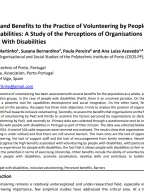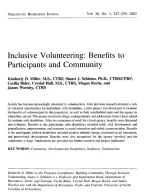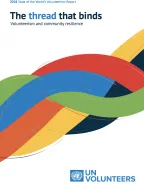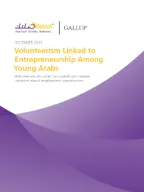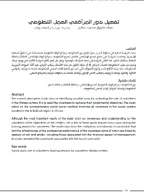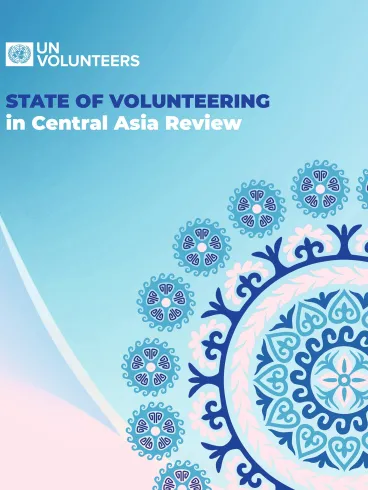
Report
State of Volunteering in Central Asia Review
Volunteerism
Download
Fast read
This first regional report of its kind published by United Nations Volunteers showcases the evolution of volunteering practices and the impact of volunteer efforts, emphasizes the value of volunteers' contributions, and identifies best practices in Central Asia’s volunteer movement. The report focuses on the region’s five countries: Kazakhstan, Kyrgyzstan, Tajikistan, Turkmenistan and Uzbekistan.
Synthesis
- Volunteering in Central Asia is deeply rooted in tradition and serves as a source of pride for the current generation. However, modern volunteering in the region is experiencing a renaissance emerging as a rapidly developing social phenomenon. Today, volunteering takes new and diverse forms that increase its effectiveness and sharpen its purpose. These changes expand the range of opportunities for public participation.
- Split into five chapters, the report serves as a tool for evaluating progress and taking stock of the diverse ways volunteers contribute to implementing priorities at the national level as well as the Sustainable Development Goals.
- The first chapter offers a comparative analysis of the legal frameworks governing volunteering in the five countries. The analysis identifies similarities and differences based on each country’s specific context.
- The second chapter examines how volunteerism is incorporated into the United Nations Sustainable Development Cooperation Frameworks (UNSDCFs) in each of the five focus countries and how these countries reference volunteerism in their Voluntary National Reviews.
- The third chapter delves into the development of volunteering in the region across diverse sectors such as environment, health, education, social services, search for missing persons, emergency response and corporate volunteering.
- The fourth chapter showcases exemplary volunteering activities, representing good practices that can build dialogue among stakeholders involved in volunteering.
- The research conducted in Central Asia has yielded a set of recommendations developed jointly with volunteers, organizers of volunteer activities and experts. These constructive ideas and proposals are intended for a wide audience, including local representatives of governments, ministries and other state bodies involved in supporting and coordinating volunteer activities, as well as politicians, public figures and, of course, volunteers and representatives of non-profit and volunteering organizations.
- The implementation of these recommendations is grounded in the principles of intersectoral collaboration, addressing state entities, volunteers and the non-profit, public and corporate sectors simultaneously.













